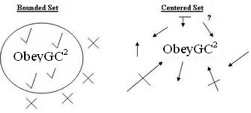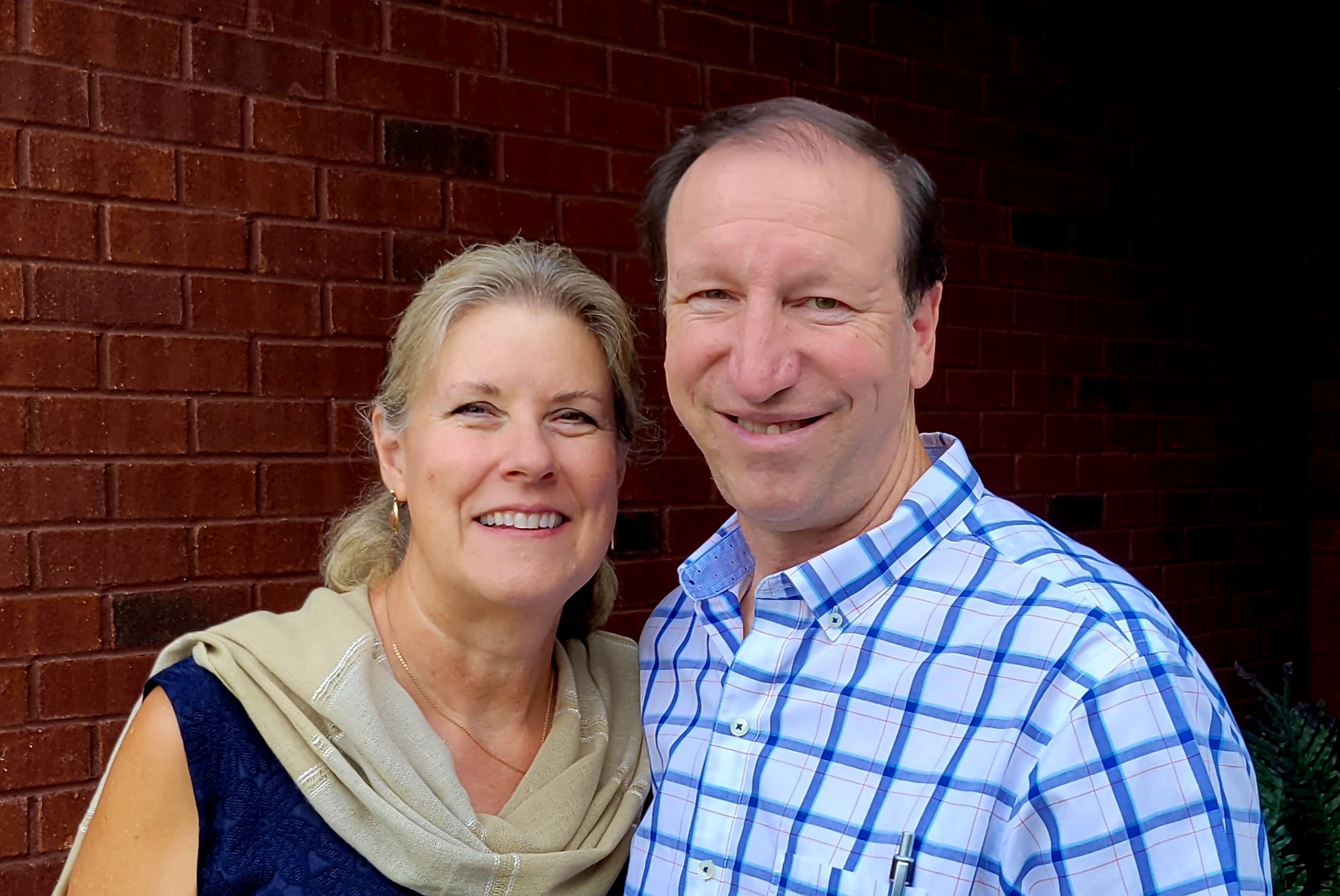 I believe we should not (and perhaps cannot) define ObeyGC2 in an airtight fashion which will allow us to determine what is and isn’t ObeyGC2 For starters, it just isn’t practical. We must rather give a general definition and then carefully enunciate the values and principles that will ideally characterize ObeyGC2 The result will be a situation in which we are not dealing with the construct of ObeyGC2 activities as a bounded set but rather as a centered set. The question at hand when planning and evaluating opportunities will not be, “Is this ObeyGC2 or not?” but rather “How can we respond in a way that is as ObeyGC2-like as possible?” The values and principles can then be considered as benchmarks to shoot for. Arrows with a hash in the centered set diagram would be considered ObeyGC2-like because they would in general represent most of the values of ObeyGC2 This is less alienating for “non-ObeyGC2” practitioners, leaving the door open for influence and interaction in order to make their activities as fruitful and effective as possible and continues to challenge ObeyGC2 practitioners to improve and refine their work.
I believe we should not (and perhaps cannot) define ObeyGC2 in an airtight fashion which will allow us to determine what is and isn’t ObeyGC2 For starters, it just isn’t practical. We must rather give a general definition and then carefully enunciate the values and principles that will ideally characterize ObeyGC2 The result will be a situation in which we are not dealing with the construct of ObeyGC2 activities as a bounded set but rather as a centered set. The question at hand when planning and evaluating opportunities will not be, “Is this ObeyGC2 or not?” but rather “How can we respond in a way that is as ObeyGC2-like as possible?” The values and principles can then be considered as benchmarks to shoot for. Arrows with a hash in the centered set diagram would be considered ObeyGC2-like because they would in general represent most of the values of ObeyGC2 This is less alienating for “non-ObeyGC2” practitioners, leaving the door open for influence and interaction in order to make their activities as fruitful and effective as possible and continues to challenge ObeyGC2 practitioners to improve and refine their work.
A partial list of ObeyGC2 values would include: high-leverage, strategic, sustainable, reproducing, scaling, wholistic, efficient, coordinated, intentional, glorifying God, congregation-centric, addresses greatest needs, community-based, viralocity, training (not teaching), oral-friendly, love-motivated, prioritize least/last/lost, effective, local ownership, transferable, do no harm, listen and learn before acting, do and train, presence before projects, team-based, respects the church, involves every member, transformational, respects local community leaders, exit strategy if not in home community, etc. This is not an exhaustive list, but a representative list. I intend to write a blog entry on each of these values.
To summarize, the values of ObeyGC2 are principles which should be used in order to ensure that our activities are as effective and as efficient as possible. This is a matter of stewardship of the time, energy and resources which God has given us.
Matt 25:19-21
19 “After a long time the master of those servants returned and settled accounts with them. 20 The man who had received the five talents brought the other five. ‘Master,’ he said, ‘you entrusted me with five talents. See, I have gained five more.’
21 “His master replied, ‘Well done, good and faithful servant! You have been faithful with a few things; I will put you in charge of many things. Come and share your master’s happiness!'”



